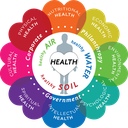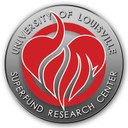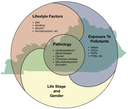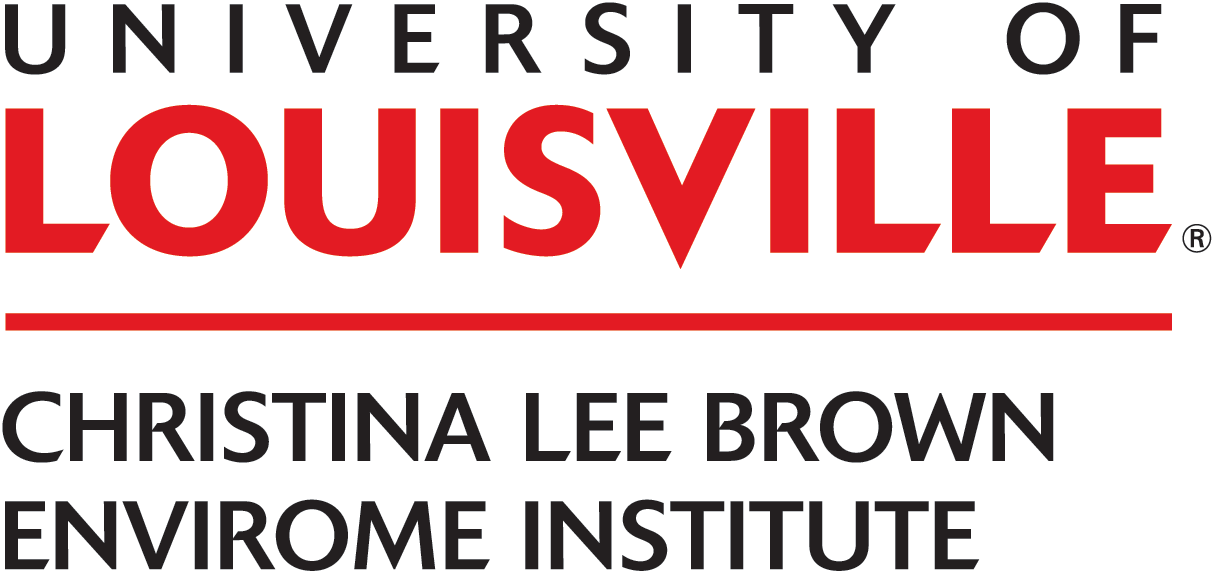Collaborative Partners
 Center for Healthy Air Water & Soil
Center for Healthy Air Water & Soil
Using the Circle of Health in Harmony as a guiding philosophy, the Center for Healthy Air Water and Soil creates a healthier Louisville by building an urban, living laboratory to support innovative environmental projects. The Center for Healthy Air Water and Soil works to empower Citizen Scientists to take part in scientific research by promoting a greater understanding of the multifaceted nature of health and by implementing a health in all policies approach for urban development.
 Superfund Basic Research Program
Superfund Basic Research Program
The Superfund Program studies the effects of chemical exposure on risk for developing heart disease, diabetes, and liver disease in populations living near toxic waste disposal sites. The Superfund Program creates new technologies to detect toxic chemicals in the environment and trains new investigators in the field of environmental science.
 Center for Cardiometabolic Science
Center for Cardiometabolic Science
The Center for Cardiometabolic Science supports leading edge research to generate new knowledge to prevent and manage diabetes and obesity. Their collaborative, multi-disciplinary approach to research yields dynamic results towards finding effective strategies to prevent, treat, and manage these chronic diseases.
 Tobacco Regulation and Addiction Center
Tobacco Regulation and Addiction Center
ATRAC has helped to shape the production, marketing, and regulation of tobacco and tobacco-related products since 2013. ATRAC projects discover the underlying damage from tobacco use that leads to heart disease, identify biomarkers for detecting cardiovascular injury, and identify effective communication methods for changing perceptions about tobacco use.
 Center for Integrative Environmental Health Science
Center for Integrative Environmental Health Science
The Center for Integrative Environmental Health Science is building a framework to integrate the interactions of pollutants and lifestyle factors to better understand these interactions in human health and disease across life stages. the etiology of chronic disease is quite complex and there is a great need for developing transdisciplinary research to reveal the mechanisms of these interacting factors in pathogenesis. The CIEHS provides leadership in environmental health research, promotes investigation of the interactions of chronic exposure to environmental toxicants and lifestyle factors in pathogenesis, and develop the next generation of environmental health researchers.
Center for Environmental and Occupational Health Science
The Center for Environmental and Occupational Health Science provides multidisciplinary and transdisciplinary research and applied scholarship, teaching, educational outreach and public service on issues of the environment, its protection and sustainable development at the local, state, national, and international levels with an emphasis on the interconnectedness of human, animal, and ecosystem health. The mission of the Center for Environmental and Occupational Health Sciences is to prevent adverse health effects related to environmental and occupational exposures through research, education, and service.
Center for Environmental Policy and Management
The Center for Environmental Policy and Management provides a range of technical and research assistance to people, organizations and governments seeking to make equitable and just decisions about their environment. We strive to work broadly within our community to develop and evaluate sustainable environmental policies and programs that enhance both social equality and the health of our natural environment. Work at the Center is focused on improving community and stakeholder capacity to engage in environmental decision-making at all organizational and institutional levels.
